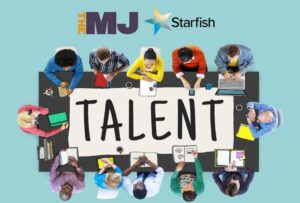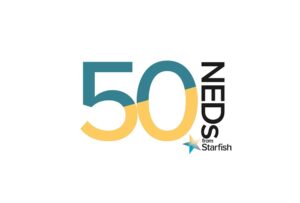Webinar – City CV & Starfish Present ‘Get Board Ready: Launching your NED Portfolio Career’
Date & Time: Wed, Sep 28, 2022 12:00 PM – 1:00 PM BST
URL: https://register.gotowebinar.com/register/955181353581911566
Playing an active role in the success of another organisation can be hugely beneficial to your executive career. Whether you’re currently seeking a new challenge, launching or diversifying your portfolio career, or contemplating a staged route to retirement, this could be a great time to explore Non-Executive Director roles. We firmly believe you are never too young to start thinking about being a NED.
As a Non-Executive Director, you’ll have an opportunity to help steer an organisation in the right direction, helping them to be profitable, perform to an optimum level and have a strategic plan for the future. It’s not about running the organisation but making sure it’s well run. Protecting its reputation and credibility. Enabling its future growth. Facilitating success and supporting the board. This leads to positive gains all round. One NED described the decision to join a board as “one of the more purposeful things I have done in my life.”
Making it on to the shortlist for a top Non-Executive Director (NED) role is a demanding process and your CV is usually the initial ‘make-or-break’ component. Your reader will bestow just a few seconds of attention to your CV before making their first screening decision, so you need a strategic Non-Executive Director CV that positions your strengths and experience as a perfect match with your target role.
In this one hour masterclass, you will learn tips and strategies from Victoria McLean, CEO of City CV and Director at the Hanover Group, a career industry expert, award-winning Board CV writer and coach, who has helped over 30,000 candidates secure their dream role.
Gain a unique and in-depth perspective on:
- Challenges and benefits of a NED portfolio career
- What a NED role involves – how it looks in reality
- How to position yourself for a NED post. Why me?
- How to create the perfect NED CV
- How to build your NED ‘brand’
- And much more…
www.starfishsearch.com
Starfish Search. Leadership journeys, expertly navigated.
Webinar Series
At Starfish we use our integrity and insight to bring leaders – and aspiring leaders – together with organisations who share their values. We deliver board level recruitment with purpose, sustainability and influence. We want to strengthen the connection between the recruitment of great leaders and social change and are as experienced at working with senior executives as we are with non-executive leaders to achieve this.
Supporting candidates through a recruitment process is very important to us and we are therefore running a series of webinars, with partners City CV, aimed at supporting both established and aspiring leaders. The individuals we support range from mid-career professionals to top executives, CEOs, non-executive directors, and members of the board.
If the webinars are something that you’re interested in, please do visit the links below for more information and details of how to register.
Get Board Ready: Launching your NED Portfolio Career
Wed, Sep 28th, 2022 12:00 PM – 1:00 PM BST
Be the change. Period. (Menopause for Leaders)
Tuesday, 25th October 2022 12:00 PM – 1:00 PM BST
How to create The Perfect CV
Wed, Jan 18th, 2023 12:00 PM – 1:00 PM GMT
Harness the power of LinkedIn with a winning profile
Wed, Mar 1st, 2023 12:00 PM – 1:00 PM GMT
Incredible Interviews
Wed, Apr 12th, 2023 12:00 PM – 1:00 PM BST
The webinars will be delivered by Victoria McLean, Founder and CEO of City CV, and one of the senior consultants at Starfish Search. In a live Q&A, we will answer your specific questions relating to you and your career.
Starfish Search awarded a place on ESPO’s Strategic HR Services framework (3S)
Services we offer under the framework include:
- Lot 1, Executive and Managerial Interim Recruitment
- Lot 2, Executive and Managerial Permanent Recruitment
Accessing our services via ESPO ensures your organisation is procuring services compliantly with procurement regulations and can save you valuable time – offering public sector organisations the benefit of accessing without having to run a full procurement process.
What’s more, it’s free-to-access and suppliers on the framework were assessed during the procurement process for their financial stability, track record, experience and technical & professional ability. You can also choose to call off directly – a route that considerably speeds up time – or access via further competition depending on your requirements.
About ESPO
ESPO is a public sector owned professional buying organisation (PBO), specialising in providing a wide range of goods and services to the public sector for over 40 years.
If you’d like to find out more about the framework and become a supplier visit
Luke Judd, Partner within the Local Government practice at Starfish says “Starfish Search has been on a steep growth trajectory over the last three and a half years and becoming an approved supplier on the ESPO framework is another big milestone for us. It will give our clients, new and old, the chance to access our services in a clear and straightforward way.”
www.starfishsearch.com
Starfish Search. Leadership journeys, expertly navigated.
Climate – Talent 20 with The MJ
Councils across the country have now declared a climate emergency and those authorities who have not yet passed declarations are placing far greater emphasis on tackling climate change. COP26 demonstrated local government’s passion, influence and pragmatism and councils continue to lead pioneering work to achieve net zero carbon emissions. In this feature, we celebrate the achievements of twenty officers recognised for their commitment, skills and creativity in their work to achieve net zero carbon emissions and slow global warming.
To view the article please the image below
Embracing flexible working: Benefits and barriers in the voluntary sector
We each have our own experiences of flexible working – as individuals and as leaders supporting our teams to work flexibly in order to support inclusion. We know from these experiences that there is no magic formula for successful flexible working: it’s different for each organisation and individual. It’s not always easy to make it work. What’s most important is to start somewhere.
Emerging from the pandemic people are interested in implementing more flexible working arrangements in their organisations. The subject is now particularly important given the changes to the way we organise work and the need for a more inclusive culture. As this report explores, the voluntary sector culture does not always lend itself to flexible working. It is important to note that this report is relevant to all organisations looking to fully embrace a culture of flexibility; this report gives some very practical examples of where positive change has happened and recommendations on how to improve things.
To view/download the full press release please click here.
Starfish launches The 50NED Challenge
Today, Starfish launches The 50NED Challenge. Coinciding with the start of Black History Month, our aim is to help to contribute, 50 ‘boardroom ready’ first time non-executives by the end of 2023: our hope is that, by setting ourselves this target, we can do our bit to break down the barriers that exist when it comes to getting appointed to board roles without having any board experience. We want to encourage and support would-be non-executives from all walks of life who want to join boards, but simply don’t know how to access opportunities and get started.
Our 50NEDs microsite is free to use and contains honest articles and materials to help support would be non-executives as they start their own journey to getting a first board role. We also have a series of videos of non-executives sharing their advice and personal journeys. We hope you find it insightful and informative.
https://50neds.starfishsearch.com or click the link below.
Talent 20 feature in the MJ magazine
Starfish Search is passionate about spotting, supporting and developing talented local government officers with potential. In our second Talent 20 feature, published in the MJ magazine, we are delighted to place a spotlight on another twenty local government leaders of the future, this time focusing on children’s and adult social care, education, communities and public health.
To view the article please the image below
Driving Change in Diversity, Equity and Inclusion through strategic HR
Starfish Search is delighted to be supporting the Charity HR Network (CHRN) autumn conference.
Driving Change in Diversity, Equity and Inclusion through strategic HR.
Date: 23rd September 2021
For more information on this event please visit, https://www.chrn.org.uk/what-we-do/chrn-conference-2021/
Our session is entitled DEI and the brain – Kate Pearlman-Shaw (Clinical Psychologist and Associate at Starfish Search) and Katy Giddens (Director, Starfish Search) will lead this session.



